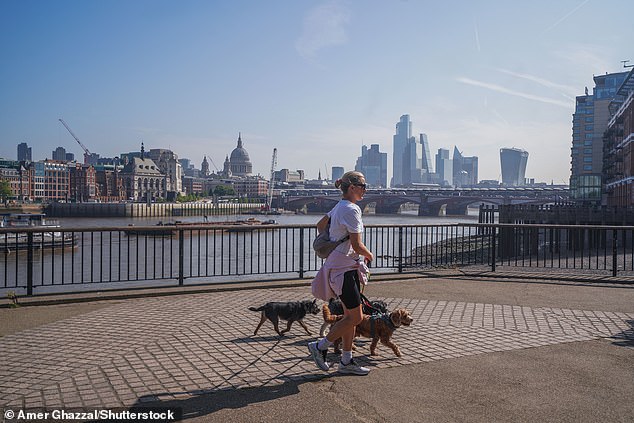
Scientists Modify UK Clouds to Block Sunlight in Controversial Climate Experiment
UK Invests £57 Million in Controversial Climate Experiments
(Images: London heatwave; Sunrise in Richmond Park; AI-generated aerosol injection concept)
The UK government’s Advanced Research and Invention Agency (ARIA) has pledged £57 million to geoengineering projects aimed at curbing global warming. Outdoor trials, including “Marine Cloud Brightening,” could begin by 2027. This method involves ships spraying saltwater into clouds to enhance their reflectivity, bouncing sunlight back into space. Initial tests will cover a 330-foot area, scaling up to several miles by 2030.
How It Works
Marine Cloud Brightening uses salt particles to coalesce water droplets in low-lying clouds, making them more reflective. Professor Mark Symes, ARIA’s program director, emphasizes that real-world data is critical: “Indoor studies can’t tell us everything.” Trials will first test sprayers indoors before winter 2027–2028 outdoor experiments at undisclosed UK sites.
Controversy and Risks
Critics warn of unintended consequences. Professor Mike Hulme (University of Cambridge) calls the funding a “slippery slope,” arguing small-scale success doesn’t guarantee safety or reversibility. Dr. Naomi Vaughan (UEA) highlights risks like regional droughts or disrupted weather patterns.
Other Funded Projects
ARIA’s £57 million supports 21 initiatives, including Stratospheric Aerosol Injection (SAI) research. A Cambridge-led project will study mineral dust aging in stratospheric balloons without releasing materials. Yale scientists previously proposed SAI at the poles to combat ice loss, using sulfur dioxide (SO₂) to reflect sunlight—a method mimicking volcanic cooling effects but criticized for potential health and environmental harms.
Global Geoengineering Landscape
Other methods include carbon capture, ocean fertilization, and afforestation. A Bill Gates-backed project in Mexico released aerosols via weather balloons, sparking debate over unregulated experiments. Critics fear secretive projects could trigger disasters like crop failures or intensified hurricanes.
Safety Assurances
ARIA vows transparency: all trials will undergo environmental reviews, community consultation, and be time-bound or reversible. Experiments must dissipate within 24 hours or allow full reversal.
(Image: AI-generated jets spraying particles)
What Is Geoengineering?
Geoengineering involves large-scale climate interventions. Key methods:
- Marine Cloud Brightening: Reflecting sunlight with seawater.
- Stratospheric Aerosol Injection: Releasing particles to block sunlight.
- Carbon Capture: Removing CO₂ using technology or ocean/forest ecosystems.
Risks include unpredictable weather changes, ecological disruption, and reliance on unproven tech.
As Britain moves forward, the balance between innovation and caution remains pivotal in the climate crisis fight.


